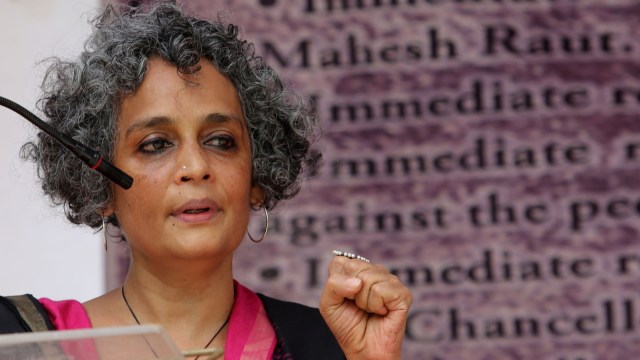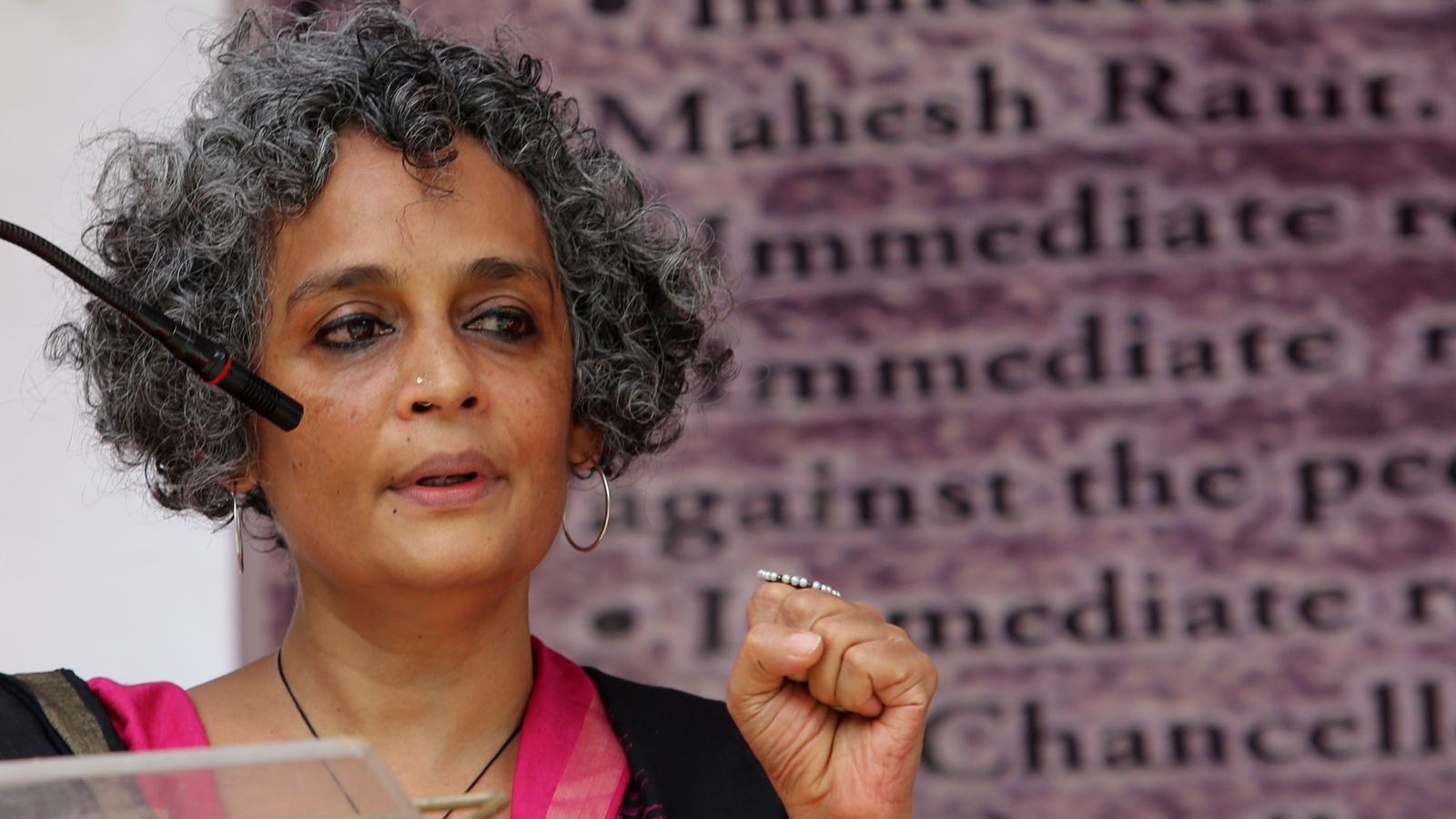
It was at the Wayanad Literary Festival that I could finally spend some time with Arundhati Roy. She was waiting for her session after that of the renowned poet P Sachidanandan and we fell into conversation. I have always envied people who can speak for long stretches. I often tend to get distracted, and once my thoughts stray, my mind begins to drift. So when she told me she can’t speak for more than 15 or 20 minutes, I felt relieved – and also excited — about having something in common with Arundhati. I have been under her spell since I first came across an excerpt from The God of Small Things (1997). I still identify myself and my sister Thara with Estha and Rahel and believe that their childhood was ours too. The book and its author remain an integral part of my life as a reader as well as a writer.
At Wayanad, we were interrupted by some readers for book signing. She signed the books, but after returning them, called the readers back as if to check something in the books. “What happened?” I asked her once the readers had left. “They are pirated copies,” she said with a smile. “Oh really? That’s sad!” I remarked. “Oh, I don’t care,” Arundhati said, “It doesn’t matter as long as someone reads them.”
Later, in her session, she said something that struck me even more. She said that she would like to travel around the world without any money and wherever she went, if she introduced herself and asked, “Will you please buy me lunch?”, there would be some reader who would gladly do so.
A year later, in December 2023, I met her again, although we didn’t get any time together. She was in Thiruvananthapuram to receive the third P Govinda Pillai Memorial National Award, instituted by the P Govinda Pillai Sanskriti Kendra, from N Ram. Alongside M A Baby and Shabnam Hashmi, I, too, was on the jury. She concluded her acceptance speech by stating that the Israeli occupation of the West Bank and the siege of Gaza are a crime against humanity. Afterwards, as she was thronged by fans and the press, I couldn’t speak to her again. I wanted to wish her, “Wherever you go in the world, let there be plenty of readers to host you at lunch and not governments to book you.”
To be honest, the reports that the Delhi LG V K Saxena has granted sanction to prosecute her under UAPA for a speech she made in 2010 hasn’t shocked me, just as her PEN Pinter Prize win this year hasn’t surprised me. Arundhati had clarified her stand years ago. She had explained that her words came from wanting to live in a society that strives to be a just one. Instead of ending the matter there, after 14 years, the government feels it warrants prosecution under the UAPA. The shocking part is that most of the mainstream media are not worried about the legal flaws or procedural mistakes. They reported it briefly and vaguely. A few who discussed it are intrigued by the question of “why now?”, meaning, perhaps, that she could have been booked much earlier. They are interested in the reasons, too. Some say that it is an attempt to divert attention from the ruling party’s disappointment with the election outcome. Others say that it is a well-thought-out plan to convince the nation that nothing has changed after all, that the government in its third term, too, will have zero tolerance for dissent.
But I think that there is much more to it if we look at the chronology. The first Modi government was more worried about human-rights activists and NGO workers. The second Modi government focused on high-profile politicians and academics. Now comes the turn of artistes and writers, and it is always better to start with the best-known first. The time is ripe for Arundhati Roy — as recently as March this year, she has challenged all mighty nations on the issue of the Gaza war with passages like “…US money and Indian poverty combine to oil Israel’s genocidal war machine. What a terrible, unthinkable shame.”
However, the current scenario boosts my pride as an author. At the least, it proves that writers in this country are still relevant. After the Emergency, no other government has taken writers and artistes as seriously as the Modi government. This government still believes in the writers’ power to transform the nation, exceeding their own. Isn’t that what all authors — living, dead, exiled, and murdered — all over the world wrote for? To be valued for being relevant, for healing the past, repairing the present, and creating a better future?
All sublime literature has blossomed out of the collective trauma of society. Whenever democracy is in danger, new ideas incarnate in the guise of stories and assume different forms of art to restore humanity and justice. Just like a new avatar in mythology, writers’ ideas, too, adopt a superior reality. Our freedom struggle, the Partition and the Emergency — all have proven this true. The poem “The Tree of Tongues” (Naavu Maram, in Malayalam) by P Sachidanandan, which alludes to the Emergency, best encapsulates this: The goddess who ruled the land chopped off a tongue tree. But, instead of withering, from the blood of the tree sprouted a thousand leaves, all tongues, putting forth the truths the goddess wanted to hide.
“The tree of tongues spread out far and wide” even during the Emergency. It should not wither now.
KR Meera is a Malayalam author, most recently of Assassin (2023)



